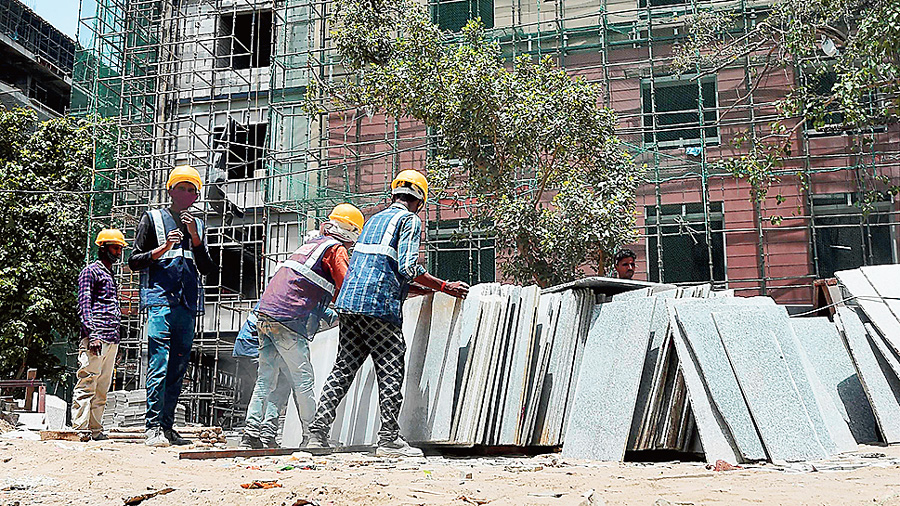Fiscal stimulus is the only way to jump start the country’s faltering economy now as there is very little ammunition left in the monetary policy to ignite a revival.
“Only fiscal policy can rekindle animal spirits at this juncture; the monetary policy has almost nil headroom,” the State Bank of India’s economic research wing said in an analysis of the Reserve Bank of India monetary policy committee’s decision last week to hold rates and persist with its accommodative stand.
“We firmly believe that even as the RBI has taken many measures to reinvigorate credit offtake, it continues to be low because corporate houses have deleveraged by repaying high-cost loans through funds raised through bond issuances. Corporate willingness for new investments remains low among all-pervasive uncertainty,” said the report.
Among the fiscal steps that the government could look at are reasonable cuts in fuel prices and GST tax waivers for stressed entities.
“The loss in revenue for growth collapse is not in the hands of the government and hence it may be worthwhile to support fiscal policy through tax adjustments. Otherwise, economic recovery will continue to be hamstrung with fuel prices at more than Rs 100 when the economy opens after lockdown,” the report said.
The report also suggested that the RBI ought to consider shifting the focus on 7-8 year papers while announcing its open market operations/G-SAP plans. “This will smoothen the yield curve and also reduce upward pressure on the benchmark yield. Additionally, the RBI can also come up with a prior calendar of bucket-wise maturity for G-SAP 2,” the report said.
It also said the RBI could buy more illiquid securities in each bucket which would allow banks to offload their held-to-maturity stocks and buy liquid ones.
Bank privatisation
Fitch Ratings on Monday said the plan to privatise two state-owned banks in the current financial year could face delays amid renewed challenges for the Indian banking sector because of the second wave of Covid-19.
The government in the Budget announced plans to privatise two public-sector banks. Niti Aayog has been entrusted with the task of selecting the banks and one general insurance company for the privatisation.
“The bold move to privatise state-run banks faces risk from political opposition and structural challenges, including heightened balance-sheet stress from the pandemic, which is likely to keep bank performance subdued for the next two to three years,” it added.
CV sales volume
The intense second wave of Covid-19 will limit growth in the volume of sales of domestic commercial vehicles to 23-28 per cent this fiscal compared with 32-37 per cent expected prior to its onset. Volume growth had hit a decadal low last fiscal, Crisil Rating said in a report.
Credit metrics of CV makers are expected to improve as margins expand on better capacity utilisation and product mix. The CV market saw two consecutive fiscals of steep volume decline (29 per cent and 21 per cent in 2020 and 2021, respectively), following multiple headwinds such as revised axle norms, BS-VI transition, and the pandemic.
While a sharp recovery from the lows was on the cards this fiscal, it will be constrained by a weak first quarter because of the pandemic. In April, freight rates fell 20 per cent month-on-month even as diesel prices remained elevated, hurting fleet operators.
With inputs from Delhi bureau and PTI










